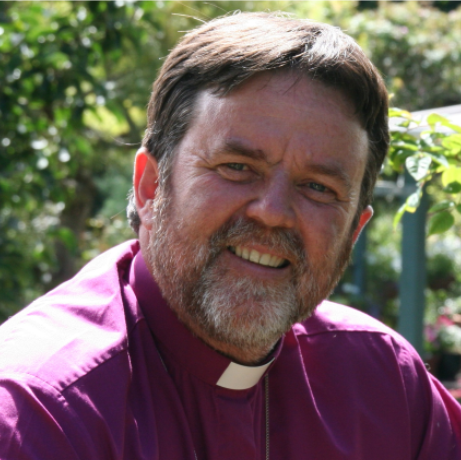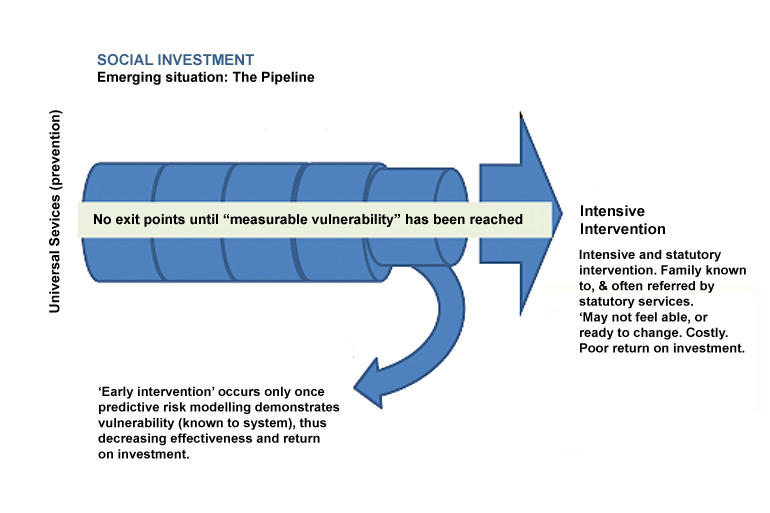 There was “robust engagement with political leaders” on the issues of housing, refugees and social investment, says Anglican Archbishop Philip Richardson, when church leaders met with the Prime Minister and Deputy Prime Minister Paula Bennett in May. The church leaders at the meeting together with Archbishop Richardson, were Baptist Leader Daniel Palmer, Roman Catholic Cardinal John Dew, Methodist President Rev Prince Devanandan, Presbyterian Moderator Rev Richard Dawson, and Salvation Army Commissioner Andrew Westrupp.
There was “robust engagement with political leaders” on the issues of housing, refugees and social investment, says Anglican Archbishop Philip Richardson, when church leaders met with the Prime Minister and Deputy Prime Minister Paula Bennett in May. The church leaders at the meeting together with Archbishop Richardson, were Baptist Leader Daniel Palmer, Roman Catholic Cardinal John Dew, Methodist President Rev Prince Devanandan, Presbyterian Moderator Rev Richard Dawson, and Salvation Army Commissioner Andrew Westrupp.
Lack of Affordable Housing is Fracturing Communities
The church leaders told the Prime Minister, “An insufficient supply of safe and affordable housing in New Zealand is contributing to a level of poverty that is fracturing the well-being of people and communities and hindering the educational progress of our children.
“Ensuring everyone has access to affordable housing is perhaps the most important means to lifting New Zealanders out of poverty and boosting the nation’s collective health and prosperity.”
The church leaders thanked Government for providing increased support for homeless people, but asked for more urgent attention to permanently address people’s long-term housing need.
Because sustainable communities can only occur where there is housing security, the leaders presented a comprehensive strategy on each aspect of the housing continuum, urging ministers to implement a broader strategy of ownership, rental, social and emergency housing solutions.
Visionary and Collaborative Leadership Needed
The Safe and Affordable Housing for All paper is built around a call for “visionary and collaborative leadership” to transform housing so that New Zealand is a better place for all. The paper says that “New Zealand’s housing situation is at a critical point” with the total supply of social and community housing declining while population and housing need growing.
Home ownership rates are declining and now half the population, including 70% of children in poverty, lives in rental housing. Housing costs are well above recognised ‘stress’ levels for a growing number of people and people are struggling to escape poverty traps of poor quality and expensive rentals with insufficient access to alternative paths into home ownership such as rent-to-buy or shared equity.
Leadership is needed to craft a housing plan leading to practical action. The current crisis is a result of decisions of successive governments, so it is now a kairos moment, a time of opportunity to renew a vision for a better collective future.
Build on what works already, say the church leaders, while urgently addressing gaps. Steps already taken that are making a difference include more income related rents, increased emergency housing, additional loans and grant funding for Auckland and Christchurch community housing, and some minimum standards for rental housing.
But more is needed, especially where little or nothing is being done. More support for shared equity, rent-to-buy and other alternative ways into home ownership are needed. Both Housing NZ and community housing providers need to build more social housing with the help of government loans and grants and a better zoning rules for new housing developments. More also needs to be done to improve rental housing quality and make it easier for people renting to stay longer-term in their homes.
| Things that need to be done: |
| – increase the number of houses across the range of housing needs |
| – ensure these houses are affordable for all |
| – improve the quality of houses |
| – increase the security of tenure, whether it be rental, shared equity or ownership |
The statement includes an Appendix that is a ‘report card’ on progress since the Government’s own Housing Shareholders Advisory Group report in 2011 that set out proposals to respond to all parts of the housing continuum from homelessness through social and affordable rental, assisted home ownership to full home ownership.
There have been some achievements since that report including more emergency housing provision and making income related rents available to people living in community housing, and Welcome Home loans. However, the need is growing faster than supply of social and emergency housing, and there is a lack of meaningful pathways out of social housing into secure long term rental or home ownership.
Focus on people, their homes and communities
The church leaders call for the focus to be on people, their homes and communities and not simply “housing” or “housing products”. Visionary leadership requires collaborative approaches and the recognition that housing is a basic human right that places a responsibility on political leaders to ensure adequate, safe and affordable housing for all.
Government’s Social Investment Approach Too Narrow
The Government’s social investment approach to social policy was discussed. While supporting the idea of social investment, the church leaders raised questions about the narrowness of this approach.
The Social Investment paper presented by the church leaders proposes a shift in the model of early intervention with at-risk families. The new model adopts a way of helping families survive and then thrive – before they reach critical condition.
The church leaders paper strongly criticises the lack of analysis of the real reasons why the current social system is seen to be failing those, particularly young people, described as most vulnerable. This lack of analysis of the causes means that the solutions being offered are simply an intensifying of past approaches – more tightly targeted social assistance; shifting existing funding around rather than genuine new investment in support; and a relying on a financial, actuarial approach to interventions instead of focusing on the actual wellbeing of those who need support.
 The perverse outcome of this highly targeted approach is that it effectively creates a pipeline towards extreme vulnerability by only focusing on those who have reached a point of very high vulnerability and need. Only then are the ‘costs’ associated with the person high enough that the ‘return’ on reducing them is considered great enough to justify Government ‘investment’.
The perverse outcome of this highly targeted approach is that it effectively creates a pipeline towards extreme vulnerability by only focusing on those who have reached a point of very high vulnerability and need. Only then are the ‘costs’ associated with the person high enough that the ‘return’ on reducing them is considered great enough to justify Government ‘investment’.
It is only at this point that many people appear in and get “noticed’ by the official government data sets (e.g. notifications to Child Youth and Family). This however ignores all the lower level and voluntary interventions available from community-based services that can and are present to help prevent situations reaching the ‘crisis’ point.
Preferred Approach Focuses on Family/Whānau Wellbeing
The church leaders preferred approach is for government to recognise that the best ‘return on investment’ may be to increase skills, resilience and natural support systems to help keep family & whānau at a sustainable level of wellbeing. The targeting approach is taking resources away from programmes that support such wellbeing. Instead resources are being channeled into crisis-level work.
Co-ordinated systems are needed that understand who the people who need help are and how effective the help provided is in supporting whānau, community and individual wellbeing.
Church leaders and their social services told the Prime Minister “we want to be involved in the further development of the Social Investment system towards a wellbeing-based model” and seek ways to engage meaningfully in the process of this development.
All three statements and accompanying media release are available to read and download on the NZCCSS website
